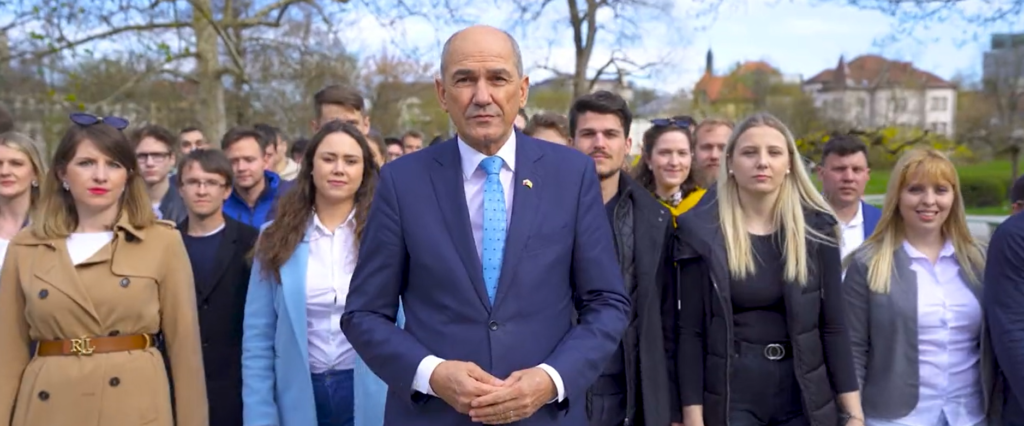Young people face a lot of difficulties in creating their first home, and many have to delay becoming independent for a long time. As a result, they also delay starting a family for even longer. In order to begin to tackle a problem that has been neglected for too long, the Housing Guarantee Scheme was adopted under the previous government of Janez Janša.
The Housing Guarantee Scheme, which has recently entered into force, allows young people aged 38 and under and young families with permanent residence in Slovenia to get a bank loan of up to 200,000 euros for a term of up to 30 years and have the State be their guarantor, when they first need to find a solution to their housing problem.
Although previous governments had a number of mechanisms at their disposal to facilitate citizens’ access to suitable housing, none of the mechanisms were ever used until the previous government took office. The Janša government thus decided to tackle the difficult problem, as they wanted to make it easier for young people to become independent.
The Act on the Housing Guarantee Scheme for Young People was adopted in April and entered into force on the 5th of May this year. As mentioned above, the scheme is aimed at young people up to 38 years of age, who must be members of a young family or employed on a temporary or permanent basis, with an average net salary in the three months preceding the loan application equal to or less than 1.5 times the average monthly net salary in Slovenia. In the year preceding the loan, their total taxable income that was not exempt from income tax must not exceed 1.5 times the average annual net salary in Slovenia.
A guarantee of 100 percent of the liability can be issued by the State for a loan of up to 200,000 euros with a maturity of up to 30 years. The borrower will have to secure the loan with a mortgage on the property and provide participation of at least 20 percent of the loan principal. However, the loans are not only intended for housing but also for the construction of a property, the renovation or extension of a property or the reconstruction of residential property.
According to the SID bank (Slovenska izvozna in razvojna banka – Slovenian Export and Development Bank), the total amount of the quota under the Housing Guarantee Scheme amounts to 300 million euros per year. It will be renewed annually at this level until the end of 2032. As the SID bank works exclusively with legal entities, it will not be the one to grant loans under the Act on the Housing Guarantee Scheme for Young People. The SID bank, however, is mandated to carry out, on behalf and for the account of the State, all operations related to the issuance, monitoring and redemption of guarantees, as well as the supervision of the earmarked use of the guaranteed credits on the basis of the banks’ reports.
In addition to the documents normally required for the granting of a housing loan, the applicants must also submit to the selected bank, among other things, a declaration or proof that the person tackling the housing issue is a first-time homebuyer and a declaration that the property subject to the loan has not yet been the subject of a credit agreement guaranteed by law. In the case of a member of a young family claiming entitlement to the credit, proof must be provided that at least one of the children is not yet of school age.
The previous government also laid the foundations for faster development of the rental housing market across the country
The previous government, which was led by Janez Janša, adopted a number of measures to improve the housing situation in Slovenia. One of the most important is certainly the adoption of the Act on the Housing Guarantee Scheme for Young People, which will make it easier for young people to get their own homes. The main objective of the Act is to make it easier, simpler and quicker for young people starting a family or being part of a young family, those in temporary or permanent employment, whose creditworthiness is generally low, to find their first home through a guarantee from the Republic of Slovenia for their credit.
All left-wing governments that have been in power in the last ten years combined have built just 340 public rental homes in the last ten years. The foundations for faster development of the rental housing market across the country were also laid under the previous, Janša government. Namely, in 2021, an amendment to the Housing Act was adopted, which included key solutions to establish a functioning housing policy and ensure sufficient affordable rental housing, as well as stipulated that additional funding for the construction of rental housing will also be provided through the Recovery and Resilience Plan. Amendments to the Spatial Management Act, the Building Act, and the Housing Act have also been made to accelerate the construction of new housing. Based on the projects already started and those that are currently in the planning phase, it is foreseen that the Housing Fund of the Republic of Slovenia alone will offer almost four thousand new rental units on the market over the next five years, while the city and municipal funds will build an additional 1,500 units at the expense of government incentives and amended legislation, all across the country.
Nina Žoher


